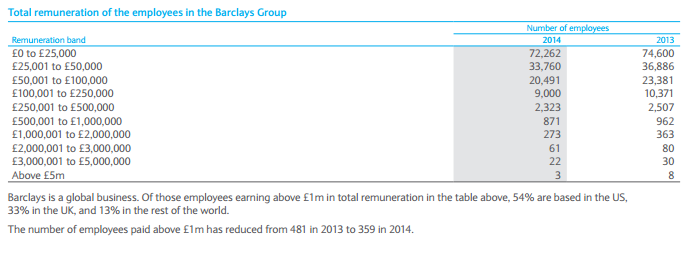Revealing pronouncements on increased minimum wage prompt important debate about top pay
One of the arguments we hear frequently is that top pay and inequality are fringe concerns. While most people agree that poverty and unequal opportunities for young people are serious issues, many dispute that inequality is part of the problem. ‘You don’t make the poor rich by making the rich poor’ is a rather pithy old chestnut often used to outline this position.
But as Aditya Charkabortty of the Guardian notes, recent insights on this subject from the Chief Executive of Whitbread plc (owners of Costa Coffee and Premier Inns, amongst other chains) are enlightening. He said that the cost of proposed minimum wage increases to his company would be £15-20 million a year. Unaffordable, in other words. But Charkaborrty’s analysis of the Whitbread annual report found that Whitbread paid just five executives nearly £14 million! In other words, if just these five top employers halved their pay (which would still leave them an average income of over £1 million a year!!!), this alone would cover half the costs of the minimum wage increase.
Barclays Bank provide another example. In addition to the well-paid investment bankers at Canary Wharf, Barclays employ thousands of clerks, cashiers and administrative staff across the globe. In fact if Barclays took half the pay lavished on their top 359 bankers – all of whom received at least £1 million last year – and distributed it evenly across the company, this would equate to an extra £2,000 for all 130,000 staff. And remember, the top bankers would still be receiving at least £500k each, more than enough to enjoy a lifestyle beyond the wildest dreams of most UK workers.
 The average CEO pay at a FTSE 100 company is about £5 million, and it is true that, as these companies typically employ thousands, if not hundreds of thousands of people, they wouldn’t gain much if CEO pay was distributed evenly across all employees. But as James Moore of the Independent argues, increases in CEO pay are likely to have been reflected in corresponding increases for other senior managers. If pay at top corporations has mirrored the UK as a whole, where the richest 1 per cent of earners have increased their share of total incomes from about 6 per cent in the early 80s to 13 per cent today, the difference represents a very significant sum of money that could provide a huge pay increase for the majority of workers if shared more evenly.
The average CEO pay at a FTSE 100 company is about £5 million, and it is true that, as these companies typically employ thousands, if not hundreds of thousands of people, they wouldn’t gain much if CEO pay was distributed evenly across all employees. But as James Moore of the Independent argues, increases in CEO pay are likely to have been reflected in corresponding increases for other senior managers. If pay at top corporations has mirrored the UK as a whole, where the richest 1 per cent of earners have increased their share of total incomes from about 6 per cent in the early 80s to 13 per cent today, the difference represents a very significant sum of money that could provide a huge pay increase for the majority of workers if shared more evenly.
This is an area that merits more research – we’d need to look at the share of total pay going to top managers at more than the two examples cited in this blog, for example. But it does seem extraordinarily complacent to argue that there is no relationship between high pay for those at the top and low or insufficient incomes for everybody else. Actually, fairer distribution of pay within big companies and other major employers could be critical to raising incomes for the majority.